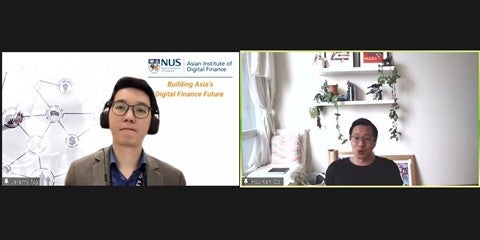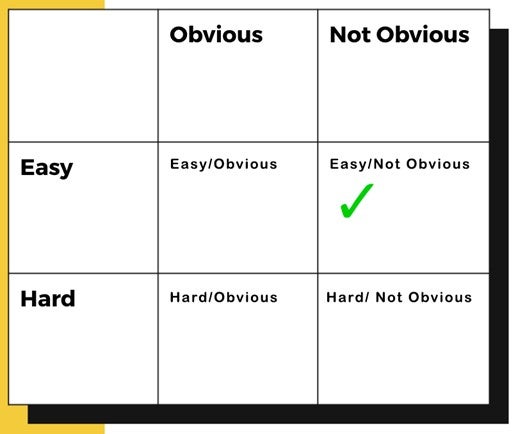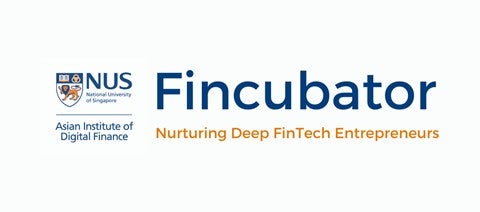Looking Back Fireside Series: Generating Scalable and Investible Ideas

Fincubator kickstarted our bi-monthly fireside chat series with Hsu Ken, General Partner at Iterative. The fireside series is to provide the community with unparalleled insights from movers and shakers in the FinTech ecosystem. Hsu Ken runs Iterative, a Y-Combinator style accelerator that focuses on Southeast Asia. He is also a serial entrepreneur who had multiple successful startup exits throughout his career. At our inaugural fireside session, he dipped into his past experiences and shared meaningful nuggets of wisdom with attendees.
How to Generate Scalable and Investible Ideas
Before the event, attendees were asked what they were most interested to know. The clear winner on everyone’s mind was: how to generate scalable and investible ideas? To this, Hsu Ken shared his quadrant mind map. The quadrant mind map describes startup ideas with two key variables; the difficulty and obviousness of the problem at hand.

The areas where there is likely to be greater room for idea exploration will be easy problems that are not obvious to the general population. However, to have such non-obvious insights, an entrepreneur must have a keen eye for detail, and/or go deep into an industry to truly understand how things work.
The quadrant also sends home a key message to entrepreneurs; to create a scalable idea, the key is to think about things from your customer's point of view and seek to solve their problems. It is easy to think in terms of an actual solution, i.e., a mobile application or a website that does something for them. However, focusing on the solution may mean that you haven’t truly figured out what the customer wants. A built solution that you have not figured if people want is a recipe for failure.
Therefore, it is better to focus instead on the core problem you are trying to solve, bring to market the fastest and most direct way to solve it and get validation immediately for it. This helps to reduce the uncertainty of whether your potential customers want the solution and reduce unnecessary costs.
Nevertheless, Hsu Ken's advice to entrepreneurs is to clearly differentiate between someone saying they want what you offer versus paying you for it. It is better validation when someone pays for the product you built, and entrepreneurs should go for their money early on.
All these requirements for validation, therefore, necessitate going out into the market early and talking to people. There is little point in being in stealth and hiding the idea.
What do VCs Look for?
The fireside chat then moved on to what was on everyone’s mind; what do VCs like Hsu Ken look for? Speaking from personal experience, Hsu Ken values an entrepreneur who can tell him something about a market that he did not know before. If he knows more about the market than the entrepreneur, it sends the signal that the entrepreneur did not dive deep into understanding the customer needs. That is a red flag.
In the larger scope of things, Hsu Ken mentioned that many founders see funding as the end goal, but they really should not. Funding is but part of a larger process that helps entrepreneurs reach their product building goals. Achieving funding should not be worn as a badge of honour.
As for information that entrepreneurs share with VCs, Hsu Ken advises that entrepreneurs should spend less time on coming up with projections. This is an early-stage investment and so to him, he knows that you probably made your numbers up. Focus again, on garnering insights and doing the real work of understanding your customers.
Audience Engagement
With about 25 minutes left in the session, we opened the conversation to the audience. There was lively engagement with Hsu Ken, with questions ranging from idea critiquing, asking about trends in the market that Hsu Ken sees, and what are the key challenges operating in SEA. One key takeaway for the audience is that to be able to generate a compelling idea, it is important to put yourself out there, and experience different things. For example, being in Singapore, Hsu Ken mentioned that till date, he has gotten a disproportionately larger pool of startups deals working on food and dating. This means that these are common areas where Singaporean founders experienced problems and want to solve. Hence, to create the next scalable idea here, one needs to go experience something not in these areas, and solve other types of problems.
Upcoming Sessions

Participants of the fireside chat had a great time interacting and hearing from Hsu Ken. Fincubator is proud to have presented a meaningful and engaging event for the community. Fincubator fireside series occurs every two months, and all are welcome to this free event. Have a topic that you want to know more about? Tell us about it at fincubator@nus.edu.sg and we will be glad to engage a relevant speaker.
Subscribe to notifications for future events here.


